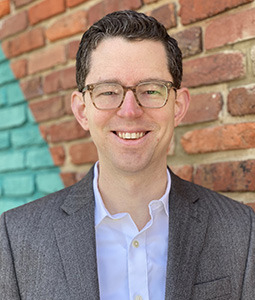Department of Sociology
Faculty and Staff Directory
Brian Levy
| Title: | Assistant Professor |
| Department: | Sociology McCausland College of Arts and Sciences |
| Email: | brian.levy@sc.edu |
| Phone: | 803-777-3123 |

Bio
Brian Levy is an Assistant Professor of Sociology at the University of South Carolina. He received a Ph.D. in Sociology from the University of North Carolina at Chapel Hill (2017) and a Master’s in Public Affairs from the LBJ School at the University of Texas at Austin (2009). Prior to joining USC, Brian was a postdoctoral fellow in the Department of Sociology at Harvard University (2017-19) and Assistant Professor at George Mason University (2019-24). He also previously served as a Presidential Management Fellow and Social Science Analyst in the Office of the Assistant Secretary for Planning and Evaluation (ASPE) at the U.S. Department of Health and Human Services (2009-2012).
Brian’s work appears in venues such as American Sociological Review, Demography, Science Advances, Social Forces, Sociological Methods and Research, and Sociology of Education.
Research
Substantive research interests: inequality, poverty, and mobility; neighborhoods; urban sociology; race, class, and gender; crime; education; health and well-being; social demography; causal inference
Department clusters: Inequalities and Institutions; Population, Health, and Well-being; Networks
Research overview: Brian studies inequality in the United States with a focus on neighborhoods, segregation, poverty, and social policy. One of his current projects takes a network perspective to explore how ties between neighborhoods forged by residents’ daily movements create a powerful, but previously unobserved, neighborhood effect. Levy uses big data on routine mobility to estimate neighborhood mobility networks, develop measures of city-level structural integration, and theorize mobility-based neighborhood (dis)advantage. Mobility disadvantage has broad implications for crime, public health, resident well-being, and beyond. A second project takes a life course perspective to analyze neighborhood effects on individuals’ socioeconomic and health outcomes. Both projects highlight the key role of neighborhoods for many dimensions of racial and ethnic inequality.
Levy is also Co-PI on two interdisciplinary projects funded by the National Science Foundation. One integrates social science perspectives into mathematical and epidemiological models to study how pandemic social isolation reduced transmission and deaths—but likely increased violence, crime, substance use, and overdose. The second project uses mixed methods to investigate how nuisance flooding impacts routine mobility and transit options, including inequalities that emerge within and between neighborhoods.
Teaching
Dr. Levy teaches courses on inequality, poverty, urban sociology, and research methods at the graduate and undergraduate levels.
SOCY 351: Urban Sociology
SOCY 391: Research Methods
SOCY 392: Elementary Statistics for Sociologists
SOCY 504: Social Stratification
Selected Publications
Brazil, N., J. Candipan*, B. Levy*, and T. Tom. 2025. “Beyond the residential neighborhood: A scoping review of research on urban neighborhood networks.” Social Science & Medicine 372. doi: 10.1016/j.socscimed.2025.117945.
Carbonaro*, W., D.L. Lauen*, and B. Levy*. 2023. “Does Cumulative Exposure to High Poverty Schools Widen Test Score Inequality?” Sociology of Education 96(2): 81-103. doi: 10.1177/00380407221147889.
Levy, B., K. Vachuska, S.V. Subramanian, and R.J. Sampson. 2022. "Neighborhood socioeconomic inequality based on everyday mobility predicts COVID-19 infection in San Francisco, Seattle, and Wisconsin." Science Advances 8(7). doi: 10.1126/sciadv.abl3825.
Levy, B. 2022. "Wealth, Race, and Place: How Neighborhood (Dis)advantage from Emerging to Middle Adulthood Affects Wealth Inequality and the Racial Wealth Gap." Demography 59(1): 293-320. doi: 10.1215/00703370-9710284.
Phillips, N., B. Levy, R. Sampson, M.L. Small, and R. Wang. 2021. “The Social Integration of American Cities: Network Measures of Connectedness Based on Everyday Mobility Across Neighborhoods.” Sociological Methods and Research 50(3): 1110-49. doi: 10.1177/0049124119852386.
Levy, B. N. Phillips, and R. Sampson. 2020. “Triple Disadvantage: Neighborhood Networks of Everyday Urban Mobility and Violence in U.S. Cities.” American Sociological Review 85(6): 925-956. doi: 10.1177/0003122420972323.
Levy, B. 2019. “Heterogeneous Impacts of Concentrated Poverty During Adolescence on College Outcomes.” Social Forces 98(1): 147-182. doi: 10.1093/sf/soy116.
Levy, B., A. Owens, and R. Sampson. 2019. “The Varying Effects of Neighborhood Disadvantage on College Graduation: Moderating and Mediating Mechanisms.” Sociology of Education 92(3): 269-292. doi: 10.1177/0038040719850146.